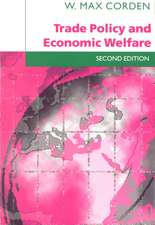Architects of Austerity: International Finance and the Politics of Growth
Autor Aaron Majoren Limba Engleză Hardback – 22 apr 2014
Architects of Austerity argues that the seeds of neoliberal politics were sown in the 1950s and 1960s. Suggesting that the postwar era was less socially democratic than we think, Aaron Major presents a comparative-historical analysis of economic policy in the United States, the United Kingdom, and Italy during the early 1960s. In each of these cases, domestic politics shifted to the left and national governments repudiated the conservative economic policies of the past, promising a new way forward. Yet, these social democratic experiments were short-lived and deeply compromised. Why did the parties of change become the parties of austerity?
Studies of social welfare policy in these countries have emphasized domestic factors. However, Major reveals that international social forces profoundly shaped national decisions in these cases. The turn toward more conservative economic policies resulted from two critical shifts on the international stage. International monetary organizations converged around an orthodox set of ideas, and a set of institutional transformations within the Bretton Woods system made the monetary community more central to financial management. These changes gave central banks and treasuries the capacity to impose their ideas on national governments.
Architects of Austerity encourages us to critically consider the power that we vest in public financial authorities, which have taken on an ever larger role in international economic regulation.
Studies of social welfare policy in these countries have emphasized domestic factors. However, Major reveals that international social forces profoundly shaped national decisions in these cases. The turn toward more conservative economic policies resulted from two critical shifts on the international stage. International monetary organizations converged around an orthodox set of ideas, and a set of institutional transformations within the Bretton Woods system made the monetary community more central to financial management. These changes gave central banks and treasuries the capacity to impose their ideas on national governments.
Architects of Austerity encourages us to critically consider the power that we vest in public financial authorities, which have taken on an ever larger role in international economic regulation.
Preț: 440.43 lei
Preț vechi: 543.74 lei
-19% Nou
Puncte Express: 661
Preț estimativ în valută:
84.28€ • 87.50$ • 70.28£
84.28€ • 87.50$ • 70.28£
Carte disponibilă
Livrare economică 03-17 martie
Livrare express 15-21 februarie pentru 30.73 lei
Preluare comenzi: 021 569.72.76
Specificații
ISBN-13: 9780804788342
ISBN-10: 0804788340
Pagini: 264
Dimensiuni: 152 x 229 x 20 mm
Greutate: 0.46 kg
Editura: Stanford University Press
Colecția Stanford University Press
ISBN-10: 0804788340
Pagini: 264
Dimensiuni: 152 x 229 x 20 mm
Greutate: 0.46 kg
Editura: Stanford University Press
Colecția Stanford University Press
Recenzii
"Major provides persuasive evidence that the positions of transnational authorities—especially German, Dutch, and Swiss ministers and central bank presidents—weighed heavily on the policy considerations of domestic governments . . . [B]oth interesting and well written, this book sheds light on pressing questions in historical political economy."—Stephanie L. Mudge, American Journal of Sociology
"Major contextualizes domestic political transformations during this era—namely, the shift from social welfare to economic austerity—within larger institutional and ideological changes at the international level. His book explicates how policies implemented by international monetary authorities produced social and political effects far beyond the institutions and economies they ere intended to (de)regulate . . . Recommended."—E. L. Whalen, CHOICE
"Major has certainly produced a tightly argued and focused analysis, which insightfully and convincingly demonstrates the perseverance of classical liberal ideas and their role in constructing specific policy prescriptions throughout the postwar era. Architects of Austerity offers a unique and valuable lens on the origins of contemporary neoliberal economic policy."—Timothy W. Wintour, H-Diplo
"Architects of Austerity is a provocative and informative rewriting of the political economic history of the capitalist world in the 1960s, challenging our conception of the decade as a decade of high Keynesianism. It debunks the conventional assumption that the ideology of austerity had been sidelined in postwar era, showing that it never went away and has been deeply embedded in international financial authorities."—Ho Fung Hung, Johns Hopkins University
"This is a fine book on a timely topic. Aaron Major's argument is global in scope and draws on a wide range of archival documents to come to a fascinating conclusion: that the main actors in the rise of austerity are central banks, and that neoliberalism in monetary policy actually began not in the 1970s, but in the 1950s and 1960s. Architects of Austerity clearly advances our knowledge of some of the most important issues of our day."—Monica Prasad, Northwestern University
Notă biografică
Aaron Major is Assistant Professor of Sociology at the State University of New York, Albany.
Descriere
Architects of Austerity presents a new interpretation of the ascent of neoliberal policy, tracing its spread to the growing influence of central banks and treasuries in the management of the global economy.



















